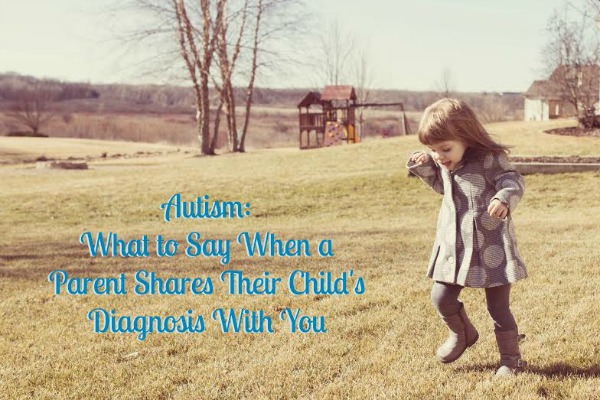Every year, April is focused on Autism awareness and acceptance. Autism is a developmental disability that affects how a person “thinks, learns, uses their senses, moves their body, communicates, and relates to other people.” It is important to use this dedicated month to learn more about autism and learn how you can help change the dialogue in our communities.
 With 1 in 68 people receiving an autism diagnosis, the chances are high that you know someone with autism. I am a parent of two autistic children, and this month I wanted to share with you 5 practical things that you can do when a friend shares an autism diagnosis with you.
With 1 in 68 people receiving an autism diagnosis, the chances are high that you know someone with autism. I am a parent of two autistic children, and this month I wanted to share with you 5 practical things that you can do when a friend shares an autism diagnosis with you.
- Be present. Whether on the phone or in person, let your friend know that you are there for them if they ever need to talk. You could even offer to attend appointments with them to take notes. If your children are playmates, don’t change the status quo. Your children won’t “learn autism” from their friend. Understand if your friend retreats for a while, but keep letting her know you’re there. Maintain your friendship, and don’t disappear.
- Take cues. If you are able to tune into your friends emotions, do. Let them work through their emotions with you, and don’t judge them. When I told people, it was really important to me that my friends didn’t jump into pity, or say they were sorry. Yes, I was shell-shocked, but nothing had really changed. So, I framed the way that I told friends. In the same vein, if your friend cries as she tells you then let her do that with you, in a safe and non-judgmental environment.
- Ask questions. Let your friend lead the conversation, but don’t be afraid to ask things like “How do you feel about this news?”, or “How can I best support you?” Ask if there is something you can do?
- Stay in the moment. Don’t speculate the “whys”. Questions like “do you think that it’s his diet?”, or “have you tried just putting your foot down?”, or “do you think this is because he had the MMR vaccine?”, or “maybe if you just spend some one-on-one time with her”, are just not helpful. An autism diagnosis may feel scary, but it’s not a tragedy. Speculating the “whys” doesn’t achieve anything, but it may make your friend start wondering if there was anything they could have done differently. (Spoiler: there wasn’t, some people just happen to be born with autism. They are still a great parent.)
- Tell them they are a great parent! You’re friends with them for a reason! You love them! So let them know that you’ve seen the kind of parent they are, and you know that they are pretty awesome at this parenting business.
Overall, just be there, be you, and help them feel supported. Educate yourself, learn more, and keep being an awesome friend!
For more information on autism, and to find access to lots of very helpful resources, please see http://autisticadvocacy.org/ — The Autistic Self Advocacy Network.












